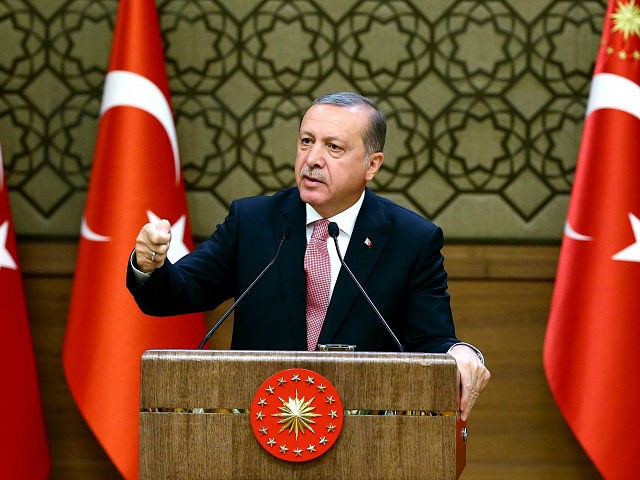The government of Recep Tayyip Erdogan is planning the construction of a facility the Hurriyet newspaper has dubbed the “Turkish Pentagon,” in an attempt to concentrate the nation’s military leadership in one place and move various military hubs further away from the Turkish Parliament and other civilian authority centers.
Among the agencies that will be relocated to the new facility will be the National Intelligence Agency (MİT), the Defense Ministry, and the Turkish General Staff, including the leadership of the Ground, Naval and Air Forces. Hurriyet cites the Turkish-language Habertürk publication as stating that the facility will serve as a “security campus” and be located far from the civilian power centers in Ankara, in the Etimesgut district.
“The move comes after the government decided to move all military units with heavy weapons and armored vehicles to the outside central areas of cities,” Hurriyet reports.
“Currently, military units are still located around the parliament. This harms parliament’s civilian image. It gives the image that [parliament] is surrounded,” the ruling Justice and Development Party (AKP) said in a statement.
Keeping the military away from civilian leaders appears to be an attempt to stave off any future attempts at a coup d’etat, following the failed coup on July 15 that resulted in the deaths of hundreds and removal of thousands of soldiers from the Turkish armed forces. That coup was led by military officers, who the government claims were fueled by their loyalty to Islamic cleric Fethullah Gulen. In the immediate aftermath of the coup, however, many observers noted that the Turkish military has long been viewed as a bastion of secular Kemalists, and the message the military sent out that night appeared to corroborate the claim that secularists were pushing to remove Erdogan because of how he had increasingly imposed Islam on the country. The coup was necessary, they wrote, “to reinstall the constitutional order, democracy, human rights and freedoms, to ensure that the rule of law once again reigns in the country, for the law and order to be reinstated.”
After the coup’s defeat, Erdogan called it a “gift from Allah” and began eradicating suspected Gulenists from all public jobs: military, educational, law enforcement, and civilian/political. Nearly 100,000 were detained, arrested, or fired following the failed coup, consisting of nearly half of the leadership in the military, leaving the Turkish government with a significantly diminished military population and triggering a call to hire another 20,000 troops.
Turkey was forced to significantly reduce its military manpower just as it begins positioning itself as a major player in the Syrian civil war again. Turkey’s role in the affair as a staunch opponent to dictator Bashar al-Assad and irritant to the Russian military has begun to evolve, as Erdogan has signaled he would reconsider accepting Assad’s authority in Syria and hopes to thaw relations with Russia after ordering the downing of a Russian jet in November. Russia, in turn, has teased that President Vladimir Putin is looking to meet Erdogan in Ankara this month, though the trip has not been finalized.
Turkey recently reentered the Syrian fray with a project known as Operation Euphrates Shield, designed to keep Kurdish militias west of the Euphrates River. Erdogan has repeatedly expressed concern that the Kurds will attempt to establish a sovereign country using Turkey and Syrian conquered territory, and threatened to cease cooperating with the United States if Washington sends arms to the Syrian Kurds. Turkey is also looking to participate in the siege of Raqqa, the de facto capital of the Islamic State.
U.S.-Turkish relations appear to be operating smoothly this week, however, as the two nations cooperate in a move to reconquer the village of Dabiq near the Turkish border.

COMMENTS
Please let us know if you're having issues with commenting.